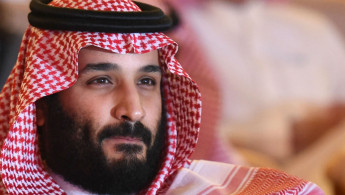Crown Prince Mohammad bin Salman said the kingdom is "returning to what we were before – a country of moderate Islam that is open to all religions and to the world".
The young heir to the Saudi throne also pledged to "end extremism" in his speech that appeared to be an attack on the country's ultra-conservative religious establishment.
"We will not spend the next 30 years of our lives dealing with destructive ideas. We will destroy them today," Crown Prince Mohammad said. "We will end extremism very soon."
In the past year, the ambitious young prince has accelerated efforts to restructure Saudi Arabia's economy and has been touted as the engineer of the apparent liberalisation laws relating to social issues.
Prince Mohammad was seen as being behind the recent move to allow Saudi women to drive and has been promoted as the kingdom's moderniser.
While the crown prince's words may be welcomed by the international community, recent actions by the Saudi state have shown how the kingdom's current definition of ending "extremism" has entailed a number of controversial policy choices.
The inexperienced prince is thought to have been the driving force behind Saudi Arabia's costly war in Yemen, where the civilian death toll has exceeded 5,000.
The Saudi-led military coalition, as well as the Houthi rebels it is fighting, have been accused of war crimes in Yemen and was recently placed on the UN's annual blacklist of violators of children's rights.
Prince Mohammad is also believed to have been a key figure in Saudi Arabia's rift with Qatar over Doha's alleged support for extremism.
The rift has led to an ongoing blockade of the Gulf state, as well as the arrests of prominent Saudi religious clerics and social media users over their alleged support for Qatar.
Such moves have raised concerns that Saudi Arabia is in fact tightening its grip on freedoms within the country, while presenting a facade of newfound moderation to the world.
"Saudi Arabia never was an open society, but it never was a kingdom of fear," Jamal Khashoggi, a self-exiled senior journalist and former government adviser told Bloomberg in a recent interview. The arrests, Khashoggi added, are "part of the closing down of space for freedom of expression".





 Follow the Middle East's top stories in English at The New Arab on Google News
Follow the Middle East's top stories in English at The New Arab on Google News
![Israeli forces ordered bombed Gaza's Jabalia, ordering residents to leave [Getty]](/sites/default/files/styles/image_330x185/public/2176418030.jpeg?h=a5f2f23a&itok=_YGZaP1z)

